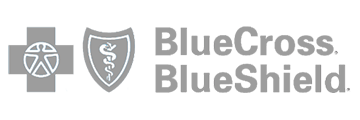Relapse Prevention North Atlanta, GA
To find out more about preventing relapse, call Southeast Addiction now. If you or someone you love struggles with substance use disorder, don’t wait. Speak with us about it.
Our Services
Can We Prevent Relapse?
Sometimes we fail. We try hard, but just can’t prevent relapse. We feel like we’ve given it everything. We struggle and we strain ourselves. And it seems like our efforts just blow up. Right in our faces. We equate ourselves with Sisyphus, the Greek king. The gods condemned him to push a boulder up a hill. Once it reached the top, the boulder rolled down the other side. We feel just like that. Stuck. Watching our work slip on by, without any success.
In recovery, progress can feel slow. Nevertheless, imperfect progress remains progress. We ought not to seek a perfect transition. Sometimes, we will come up short of our ideals. We must forgive ourselves. But beyond that, perhaps some safeguards exist.
Southeast Addiction parses through the following:
- Explaining the concept of a “relapse”
- Factors that can cause relapses
- The discipline of aftercare
- How to make a relapse prevention plan
- What to do if you need more information about relapse prevention
Explaining The Concept Of A “Relapse”
In recovery, we work to get better. We become sober so that we can focus our attention on the details of our lives. But often, we feel overwhelmed. Our minds become flooded with automatic thoughts. We get a sense of claustrophobia. And our resolve caves in. We compromise our sobriety. And thus, we relapse. When we move away from our goal (instead of toward it), relapse occurs. Remember – relapse doesn’t begin when you consume a substance. It first begins in your mind. And it can end there as well.
Factors That Can Cause Relapses
Like any human behavior, relapse has a variety of contributing factors. Remember, relapses happen. Relapsing does not make someone “bad.” When someone fails, they do not automatically become a failure. Some research even deems relapse a normal part of recovery. Please keep this in mind if you love a recovering person.
Some factors that can influence relapse:
- Mental health
- Negative thought patterns
- Trauma
- Enablers
- Stress
Mental Health
Many people dealing with substance use disorder also suffer from mental illnesses. We term these co-occurring disorders. You may hear the word comorbid or comorbidity. In this regard, we ought to think of the mind like the body. The body can get injured. It can become sick and weak. Consequently, it may need time to heal. Like the body, the mind falls subject to these same problems. But unlike the body, we cannot observe injuries to the mind. If someone experiences a mental injury, it could provoke a relapse.
Negative Thought Patterns
Often, humans look around at their lives and ask, “How did I get here?” How we think influences how we behave. How we behave affects our lives. Still not convinced? This study documented a therapeutic approach called rational-emotive behavior therapy (REBT). The research pool included students at technical colleges in Nigeria. The research measured the effects of REBT on the students’ negative thoughts about their careers. Researchers found that REBT helped the students gain a better outlook on their careers. People who believe in positive outcomes will look for them. People who remain pessimistic tend to find only subpar results.
Trauma
One might hear the word trauma frequently. It can refer to a broad array of experiences. At its foundation, trauma means any situation that overloads our mind’s ability to handle. We might move through a circumstance and not recognize its traumatic effects. We might think of what happened as normal. But we begin to develop symptoms of unrealized trauma. Some of those symptoms include:
- Disturbances in sleep
- Nausea
- Changes in eating habits
- Flashbacks
- Heightened arousal
Enablers
Just because a person becomes sober does not mean they will remain so. Prolonged recovery involves re-evaluating our relationships. Some relationships might encourage recovery. But others inhibit it. Enablers may mean well, but they influence a person to continue consuming a substance. How a newly sober person relates to an enabler can motivate a relapse.
The Discipline Of Aftercare
Each level of substance abuse treatment has a certain regimen. One must do away with old patterns and create new ones. This serves as one of treatment’s biggest advantages. Not everyone needs every single treatment level. However, any recovering person needs a measure of consistency and routine.
Aftercare programs represent the least restrictive treatment option. They afford a client a great deal of freedom, independence, and responsibility. At this point, the client has little supervision. As a result, they must continue to maintain a routine to prevent relapse.
Aftercare Options
One can find several different aftercare options. Not every option works best for every person in every situation. Do your best to familiarize yourself with different aftercare approaches. Ask your treatment provider for input as well.
- Individual therapy appointments: meeting one-on-one with a therapist or counselor
- Group therapy: gleaning wisdom from scheduled sessions with other clients, a therapist or counselor moderates these discussions
- Sober living: an intentional community committed to abstinence
- Peer support: regular organized meetings with people who have had similar experiences
- 12-step programs: AA, NA, SMART Recovery, Celebrate Recovery and the like
How To Make A Relapse Prevention Plan
Now that we know what relapse is, we can take steps to prevent it. Remember, you may not follow your plan perfectly. You might relapse. If that happens, simply go back to the beginning of your prevention plan. When structuring your plan, make it as simple as possible. Don’t overcommit yourself. Instead, pick one kind of aftercare. Commit to that one. Eventually, you’ll find that you’ve attended consistently for a month. Once your assistance becomes consistent, then you can consider implementing other aftercare options.
Start small and simple. Choose the easiest option. Pick the one that you think would require the least effort from you. If you choose too many options, you may find yourself stretched thin. That could cause you undue stress. So, err on the side of caution. Stick with 1 option at a time. You can always add more later.
What To Do If You Need More Information About Relapse Prevention
To find out more about preventing relapse, call Southeast Addiction now. If you or someone you love struggles with substance use disorder, don’t wait. Speak with us about it.
Get the help you need now
We are Here for you.
If you or a loved one need help, we are available to guide you through every step of your recovery. Call us today and speak with a recovery counselor to get started.








